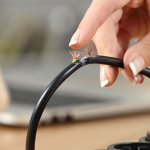The death of someone you care for can be truly devastating, especially when it happens suddenly and unexpectedly. Unlike a terminal illness, in which loved ones usually have an opportunity to prepare, a sudden death in the family brings shock as well as sadness, and the ability to endure varies from person to person.
You’re In A Heightened State of Nostalgia And Denial
When a friend or loved one passes, a common reaction is to avoid acceptance and mentally block out anything reminders them of their loss, and will attempt to deny any emotional response. While it is normal and healthy to reminisce on the times you shared, some people will live in that place on it, which is unhealthy.
The Anxiety Can Become Debilitating
Although anxiety is a natural part of the grieving process, it becomes problematic if you remain in this state too long. Extreme anxiety will often manifest itself in the form of cognitive dissonance. The world will continue moving forward without you and the person you lost, and you feel both a sense of isolation as well as anxiety and a debilitating depression, which will hinder the healing process.
You Fear Or Disdain Relationships
In the minds of some, the death of a loved one reinforces the reality that mortality is an inevitable situation for you and the ones you care about, and could potentially instigate a tendency to withdraw from current and future relationships. In that mind frame, it seems better to be in solitude than to go through the building new relationships, or maintaining old ones, only to have that person taken away. While this may seem logical, it is by no definition healthy, as meaningful relationship is essential to thriving and living a fulfilling life.
Some May Turn To A Form of Chemical Escape
Sadly, this is a frequently chosen avenue in coping with loss, and will only make things worse. While alcohol and drugs might seem to soothe and alleviate your anguish for a time, their affects are short lived, and if you become an addict, you will cause even more damage to your mind, body and life. (Please remove what’s in green, as we do not want them to feel judgement) Worst of all, you dishonor the memory of the person you lost by turning to controlled substances which will ultimately destroy you as well. Your loved one who passed on would want you to live a happy and fulfilling life, which would be extremely difficult while struggling through the additional hardship of dependency.
Working Constantly And Excessively
It isn’t unusual for grief stricken people to put in long hours at the office, or to keep themselves busy at home with chores. While this might not seem harmful in comparison to using drugs or alcohol, if it can begin to consume your life and filter out what is actually good and important in your life.



